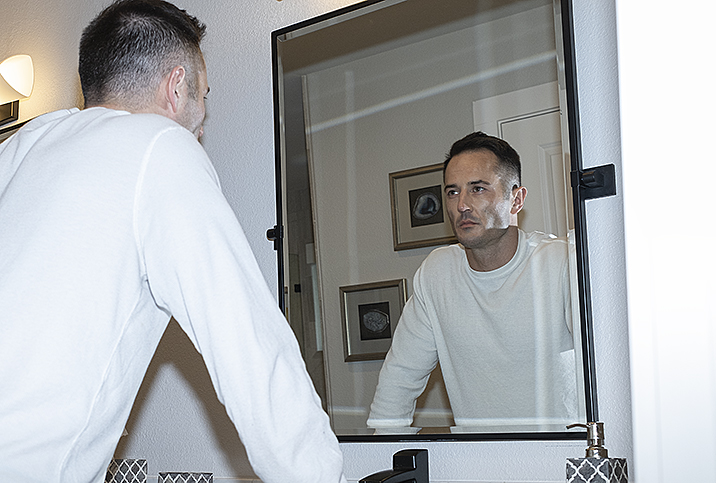How to Help a Partner Who Refuses to Talk About ED

How many of you have been in this uncomfortable situation? Your husband or partner wants to but can't achieve or maintain an erection. To say the mood or moment is lost would be a bit of an understatement.
If this is the first time your partner is experiencing erectile dysfunction (ED), he's likely panicky or anxious. If this is a regular occurrence, he's probably frustrated or maybe worried that something is wrong with his health. Regardless of reaction, your instinct may be to talk about it. It's possible, though, that refuses, leaving you wondering how you're going to get over this hurdle.
Navigating an ED occurrence and the conversations after your partner experiences it can be tricky, but providing the appropriate comfort and support can make a big difference in remedying the problem.
Follow his lead when discussing ED
Before you probe with questions or comments, the most important step in communicating may actually be to bite your tongue (figuratively). While there are many physical and organic causes of erectile dysfunction, there's also the possibility that psychological factors are involved, especially for middle-age and younger men. Your reaction could potentially double down on the stress your partner is feeling and make the situation worse.
Follow your partner's lead. If he doesn't want to discuss the situation right away, give him space and time to release the tension he's feeling. At a later time, when he has cooled off, ask if he wants to address it but don't be put off if he chooses not to talk. Remember that while you may be eager to talk about it, your partner might not want to dwell on it.
Relationships can be strained by ED, but couples can definitely work through the challenge to produce an even stronger bond. Giddy psychologist Dr. Susan Ansorge talks about creating normalcy in a relationship despite the occurrence of erectile dysfunction. Watch the video here to learn more.
Show your support and don't take ED personally
After his reaction, it's important to extend the invitation of support without any indication of guilt or shame. You may be disappointed—maybe you're even spiraling or worried it was related to your actions—but keep a cool head and remember that ED can happen for a wide variety of reasons. More than likely, it's not about you.
Instead, convey to your partner that you are there for him, that you love him regardless and will support any next step he wants to take in addressing the problem. Ultimately, you likely have no idea what he's feeling, and it's not your place to dictate how he processes ED. All you can do is be a pillar of support for them.
Seek professional help
If your husband or partner's ED becomes more frequent, the most appropriate reaction might be to suggest he see a urologist or sex therapist. While some partners may get defensive or embarrassed to talk with a third party about this sensitive subject, such a path takes the pressure off you to know what to say or how to advise your partner.
Think of it this way: If you have heart issues, you see a cardiologist. By suggesting your partner seek a medical professional's opinion on their ED, you open up the situation to a solution and give him a chance to talk out a touchy issue without any kind of pressure on your relationship.
ED is a common phenomenon that affects more than 30 million men, but that knowledge doesn't necessarily reduce the amount of shame or anxiety that accompanies it. Give your partner time and space to process the situation, and make sure you support him throughout.


















